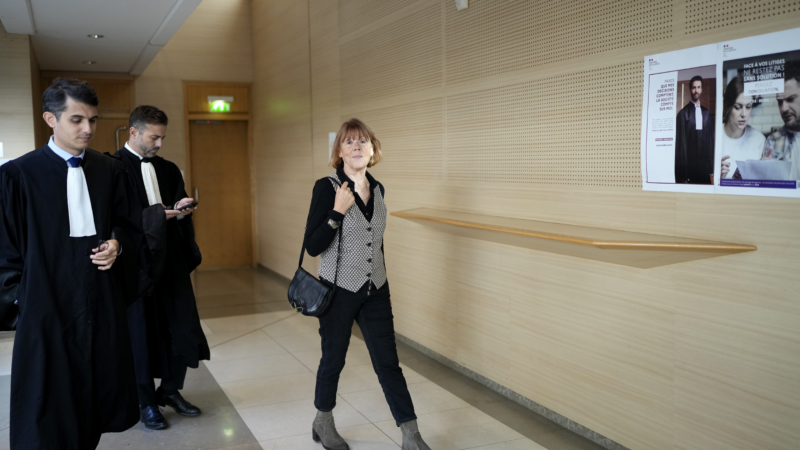Prison Arts and Education
But prison is creativity’s antithesis… where individualism becomes numerical and homogeneity is the rule. Survival is key. And to do that, prisoners keep in, they don’t let out.
Unless there’s an outlet. And Jeff Anglin found it.
Anglin – who was convicted of murder 16 years ago – has had plenty of time to perfect his craft, something he didn’t do on the outside.
“And maybe I could’ve found the time, but you know, I never looked at it.”
He says he’s always been told that he can draw. But it wasn’t until he had the time – while doing time – that he began honing in on the craft.
“You get in here, you get in prison, and you think man – this is it, you know. What am I gonna do when I get out? And a lot guys, they don’t have any skill, they don’t know where they’re going. But, I mean, it’s like there’s something more. And this kind of just gives you something to look forward to, you know, ‘well, I can do this, I can get out there and do this.'”
Anglin participates in the Alabama Prison Arts and Education Project, a program based at the Center for Arts and Humanities at Auburn University. Courses range from creative writing to photography to drawing.
“Most of our students have a pretty poor track record with educational experiences, so if we can provide a strong education experience, where they excited about learning, then it fosters that for them when they get out.
Director Kyes Stephens says while the program is based at Auburn- a state-funded school, most of the money for the courses comes from grants, including the Alabama Humanities Foundation and the Alabama Council on the Arts and Greater Birmingham Community Foundation, both of which have also supported WBHM.
She says instructors fan out across the state and are passionate about their jobs.
“Every single one of our teachers would teach in the prisons whether or not there was a program. The education experience is phenomenal. It’s not like any other classroom experience you walk into. And, you know if people and individuals can work together to make change for a group of people that they are concerned about, then how can that be a bad thing?”
But because this is a program for prisoners, you know, people who are convicted of doing bad things, it raises the ire of victims’ groups, who say prisoners should be punished and not coddled.
Miriam Shehane – whose daughter was murdered in Birmingham more than 30 years ago – helped found the group Victims of Crime and Leniency, or VOCAL. She also serves on the Alabama Crime Victims Compensation Commission.
“I believe that everybody should be given a high school education. Beyond that, zilch. They can be talented. It wouldn’t be so bad, if it was not always someone trying to help the inmate.
Shehane says more programs – educational or otherwise – should be geared toward victims, who didn’t choose their fate and have to live with the consequences of someone else’s choice.
But experts say educating prisoners, nearly 4 in ten of whom don’t have high school diplomas, not only helps the inmate, but eliminates future victims.
“Well, I think there’s the victim that were and the victim that will be. And of course, the best form of dealing with future victims is reducing that risk.”
Dr. John Kramer is Associate Head of the Department of Sociology and Crime, Law and Justice at Penn State University.
Kramer has made a sociological career out of criminal justice, serving as prison guard and counselor at a lockup, as parole officer and sentencing board member and, in the 1990s, as the Director of the United States Sentencing Commission.
“I think one of the crucial issues you have is the … certainly no one’s abandoning the people who were victims, but the issue here is how do we reduce the likelihood of there being further and future victims in this process?”
According to a Federal Bureau of Prisons study, among released prisoners who have a high school diploma, 39 percent are re-arrested. But for those who took at least some educational courses, the number drops by more than a third.
For those with an eighth grade education or less, where recidivism rates are higher, the number still drops – by about 8 percent – for those who took some courses while in prison.
Gail Leonard talks about keeping herself busy behind bars as she flips through a pile of certificates and congratulations letters, Leonard took all kinds of classes including grief skills, coping with depression and creative writing. It was with the latter that she had a chance to do what she calls her passion: to write.
Leonard is the exception here. She’s educated: High school diploma. College degree. Masters in Business. She was convicted of embezzling a few years back, a humbling time for her.
“I feel like I’ve got a big Scarlet Letter on me now. For the rest of my life, will go through life, wearing a Scarlet Letter. Except mine will be ‘F’ for felon.”
Out of prison now, Leonard works at the Lovelady Center in East Lake, a faith-based organization that helps women with addiction or those who are transitioning from prison back into society. She also makes money by writing for an online business on the side, something she says she enjoys tremendously.
She says the additional education she got while in prison kept her sane and showed her that other people – fellow inmates – needed to have access to it.
“I don’t understand the attitude that you know ‘you had your chance, you blew it. That’s it, we’re done with you.’ And that’s pretty much the way society is right now.”
But victims’ advocates such as Miriam Shehane say education should be reserved for people who don’t break the law… that educational opportunities are perks for people who should be paying penance.
“Well you know there is such a thing as punishment. I mean they made a choice to commit a crime. And that is what punishment is about.”
The Prison Project’s Kyes Stephens says the term ‘corrections’ is about renewal, not just about restraint.
“We believe that education is good for anybody. And that education can help transform someone’s life. And if somebody is going to come out of prison, don’t you want them to come out wanting to be an active member of the community and participate in the positive nature of our society rather than being embittered?”
Two ideas: prison for punishment, prison for learning. Whatever society’s view – about crime, about education and how one affects the other – the debate affects people on both sides of the bars.
Mass trial shines a light on rape culture in France
A harrowing and unprecedented trial in France is exposing how pornography, chatrooms and men’s disdain for or hazy understanding of consent is fueling rape culture.
Teammates LeBron and Bronny James make history as the NBA’s first father-son duo
The Jameses, who both play for the L.A. Lakers, shared the court for several minutes on the NBA's opening night. They join a very small club of father-son teammates in American professional sports.
When Steamboat goes WHOOSH, scientists look for answers
What triggers geysers to go off is still not well understood. A new paper shows that one small earthquake likely triggered an eruption of the world's tallest active geyser, Steamboat.
Trump’s ex-chief of staff warns his former boss would rule like a ‘fascist’
John Kelly is one of several Trump-era White House officials to publicly criticize their former boss, arguing that Trump is not fit to hold office again.
An attack on a Turkish defense company has killed 4 people
Assailants set off explosives and opened fire in an attack on the premises of the Turkish state-run aerospace and defense company TUSAS, causing a number of casualties.
Boeing posts a $6 billion loss as striking workers vote on a new contract
Boeing reported a staggering loss of $6 billion dollars in the third quarter. The disappointing earnings report comes the same day as striking machinists are voting on a new contract offer.






